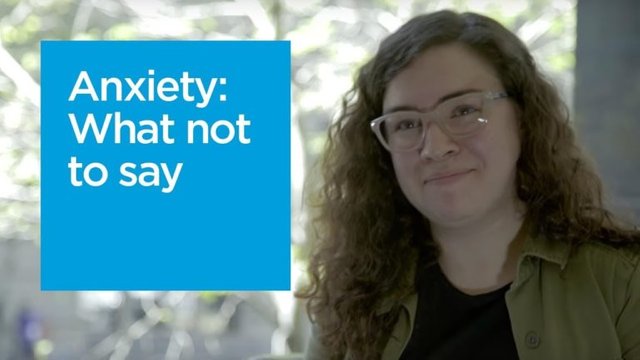
Anxiety can be one of the most insidious and damaging mental health issues. Worrying about day-to-day life can be horrible and can often lead to people becoming depressed and very ill. Supporting someone with anxiety disorder can put a lot of pressure on you, especially if you are unsure about what to do.
If you are in the MetroWest area and living with someone with anxiety or want to know how to help, reach out to one of our trained psychiatrists here.
- How to Help Someone with Anxiety

As a friend, family member, or caregiver, there are lots of things you can do to help someone you love who may be living with anxiety.
Something as simple as just being there and allowing them to express their concerns can be hugely beneficial. Don’t attempt to read their mind and guess why they are feeling anxious. Allow them to explain and if they do not feel comfortable to talk, then simply offer your support.
Losing patience or getting angry with a person because you can’t understand their logic is not going to benefit anybody, so be sure to avoid being too emotional about a situation.
There is also nothing wrong with asking a person who is living with anxiety what kind of support they feel that they need. You may not always get a straight answer, but if you do, the results will be beneficial to you both.
If you can, try and spot patterns. If you notice that certain events or situations trigger your loved one’s anxiety, try to help them avoid them. If the situations are unavoidable, then you can help them come up with personal coping strategies and be prepared to help them if one of those situations comes up. This can go a long way in helping someone with anxiety.
One of the most useful things you can do as a caregiver, a close friend or family member is to attempt to learn as much as possible about anxiety disorder and cognitive behavioral therapy. You can also offer to attend therapy with your loved one. Doing so will be perceived as a great show of support. It will help your loved one understand that you are there for them in a practical way and will be available when they need you.
- What Not to Say to Someone with Anxiety

It can be very difficult to know what to say to a family member or friend with anxiety disorder issues. As a friend or family member, you want to show as much support as possible, but you also don’t want to say something harmful.
While there is no list of golden rules that will make everything better, there are some things that you are better off not saying. Comparing a person’s anxiety disorder or severe anxiety to an everyday situation that causes a little bit of stress is never a good move. This can make people with anxiety feel as though their feelings and worries aren’t valid, which can make them feel worse.
It is also best to avoid suggestions for ‘fixing’ anxiety. Constantly asking someone if they have tried yoga, meditation, or some other new and popular technique is probably not going to help. Chances are that the person has already tried several things and the idea of there being a simple, quick fix to their problems can often make people blame themselves and feel ashamed.
It is also not advisable to ask someone if they are okay or if they are happy too often. If you regularly attempt to get a status update from someone, it can make them feel as though they have to get better right away, once again ushering in blame and shame into an already complicated situation.
- How to Calm Someone with Anxiety

Some of the most common side effects of anxiety are panic and anxiety attacks. If one of these situations comes up, you will need to remain with the person and try to help keep them calm. There are a number of things that you can do to help someone feel more in control. One of the best things you can do is to try and help them monitor their breathing. By breathing along with them, you can help them recenter and feel grounded once again.
Another important thing that you can do is remain calm yourself. Being predictable and dependable can be a huge help to someone, especially if they feel as though the world around them is spiraling out of their control. Providing a constant for someone can be a great source of comfort and help.
- How to Talk to Someone with Anxiety
It is important that you do not overload your loved one with instructions or long complex sentences. Keep your speech short and simple and communicate what you want them to do. An information overload can make someone feel panicked and also suggests that you are not in control either.
Be careful to not come across as patronizing or condescending in any way. Do not suggest to your loved one that their problems are trivial and do not talk down to them. Doing so will only damage their self-esteem and make them feel more anxious and/or depressed.
Categories: Life tips
Source
Plagiarism is the copying & pasting of others work without giving credit to the original author or artist. Plagiarized posts are considered fraud and violate the intellectual property rights of the original creator.
Fraud is discouraged by the community and may result in the account being Blacklisted.
If you believe this comment is in error, please contact us in #disputes on Discord
Downvoting a post can decrease pending rewards and make it less visible. Common reasons:
Submit